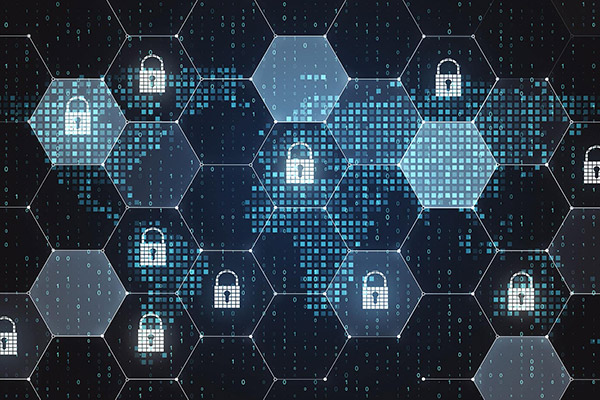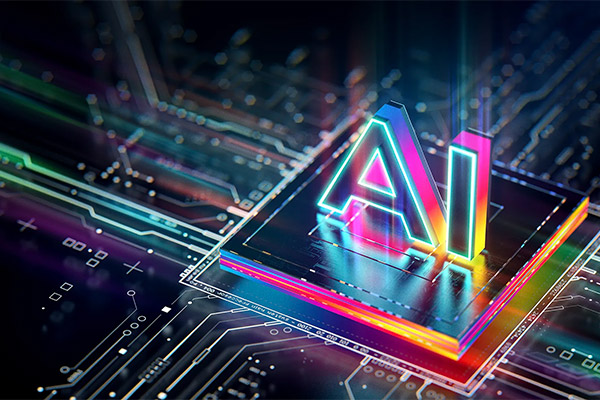
Designing Better Customer Programs with Predictive Analytics
Do you need to understand income-qualified customers to guide marketing or increase participation in your affordability programs? How are you reaching underserved communities that haven’t participated before? Utilities can better connect with these customers by using data science for targeted engagement.
This session will provide an overview of predictive analytics, data science, and customer program design. We’ll conclude with breakout groups to develop actionable frameworks you can apply within your organization to drive positive change.
Attendees will receive 1 Professional Development Hour (PDH) upon completion. Please submit your request to learn@southerngas.org
Course Objectives
- Understand the fundamentals of predictive analytics
- Discover how data science can improve programs for low- and moderate-income and at-risk customers.
- Identify program design gaps and learn how data science can address them
Target Audience
- Low-income Program Managers
- Billing and Customer Care Team Members
Instructors
Devon Grodkiewicz
Data Science Solutions Advisor, E Source
Devon joined E Source in 2022 as a Data Science Solutions Advisor, promoting data science through webinars, blogs, podcasts, and conferences. He helps utilities tackle challenges and improve operations using E Source’s data science solutions. Before E Source, Devon launched and sold a technology startup out of Northeastern University, where he earned a BS in environmental science with a focus on geospatial data science.
Bob Cooke
Executive Consultant, E Source
Bob is an executive consultant at E Source specializing in customer interaction and Meter-to-Cash operations, including contact centers, credit and collections, digital/self-service channels, billing, and payments. Recently, he’s focused on reducing arrears through targeted communications and treatment programs, supporting low-income assistance, and leading the transition to a unified customer self-service platform.

What’s Cybersecurity Third-Party Risk Management & Why Should I Care?
Face it, no organization operates within a silo. In a dependency-driven interconnected world, organizations need to have strong relationships with vendors, suppliers, and other third-parties to ensure long-lasting success but when it comes to cybersecurity risk management, most organizations only look within. Whether you’re a cybersecurity professional, a supply chain manager, or a business leader responsible for risk management, this session offers valuable insights and actionable strategies for strengthening your organization’s cybersecurity posture in an interconnected world. Join us as we explore the critical role of Cyber TPRM in safeguarding against supply chain cyber threats and preserving business continuity and trust.
Attendees will receive 1 Professional Development Hour (PDH) upon completion. Please submit your request to learn@southerngas.org.
Meet Your Instructor
Brian Tooley
Lead Cybersecurity Analyst, CenterPoint Energy
Brian Tooley is a seasoned cybersecurity expert with a focus on third-party risk management. With six years of service at CenterPoint Energy and nine years in the gas utility industry, Brian has a wealth of experience in safeguarding critical infrastructure. In his current role as Lead Cybersecurity Analyst, which he has held for two years, Brian has successfully established and led two cybersecurity third-party risk management programs, demonstrating his commitment to operational excellence and proactive risk mitigation. His expertise and leadership in this field make him a valuable contributor to discussions on cybersecurity in the energy sector.

Mind the Gap: Addressing Human Vulnerabilities in Cybersecurity
This is a comprehensive course designed to equip participants with the knowledge and skills to identify and mitigate human-related risks in cybersecurity. Through interactive sessions and real-world examples, attendees will learn effective strategies for enhancing security awareness, fostering a security-conscious culture, and implementing best practices to protect against social engineering attacks and other human-centric threats.
Attendees will receive 1.5 Professional Development Hours (PDH) upon completion. Please submit your request to learn@southerngas.org
Learning Objectives
- Identify and Recognize Phishing Attempts – Goal: Participants will be able to identify common characteristics of phishing emails and understand the tactics used by attackers to deceive users.
- Implement Strong Password Practices – Goal: Participants will learn the importance of creating and maintaining strong passwords, as well as the risks associated with weak passwords.
- Respond Effectively to Social Engineering Attacks – Goal: Participants will understand the various forms of social engineering attacks and the psychological manipulation techniques used by attackers.
- Understand the Types of Insider Threats – Goal: Participants will learn about the different types of insider threats, including unintentional and malicious insiders.
Target Audience
- HR and Training Managers:
- Professionals responsible for employee training and development, particularly in security awareness.
- Those looking to implement effective security awareness programs and foster a security-conscious culture.
- Business Leaders and Executives:
- Decision-makers need to understand the importance of addressing human vulnerabilities to protect their organizations.
- Those interested in strategic approaches to cybersecurity that include human factors.
- General Employees:
- Staff members at all levels who need to be aware of security best practices and how to protect themselves and their organization from cyber threats.
- Those who will benefit from understanding their role in maintaining a secure environment.
Akolly Dogbe
Founder and CEO, IAD Security Solutions
Mr. Akolly Dogbe is a seasoned cyber security analyst with extensive experience in safeguarding critical infrastructure. Holding a bachelor’s degree in information systems security and a master’s degree in cyber operations, Akolly has earned high-end certifications such as CISSP, CISM, GPEN, Pentest+ and CEH. With a proven track record working with the Department of Defense (DoD), Akolly has deep expertise in implementing and managing security frameworks like ISO/IEC 27001 and 27002, NIST 800, and COBIT.
As the founder and CEO of IAD Security Solutions, Akolly leads a team of dedicated professionals in delivering comprehensive security solutions and training to diverse clients. Under Akolly’s leadership, the company has successfully ensured compliance with regulations such as GDPR, PCI-DSS, SOX, and HIPAA. Akolly is adept at using RSA Archer and other GRC tools to enhance organizational security postures.
Akolly has demonstrated exceptional leadership in various high-stakes environments, including overseeing large-scale security projects for critical infrastructure and guiding organizations through complex security challenges. Akolly is known for fostering a culture of continuous improvement and innovation, ensuring that their team stays ahead of evolving cyber threats.
Currently, Akolly is providing security awareness training and penetration testing services to stakeholders at several companies, utilizing innovative methods such as cyber security escape rooms to engage and educate participants. Akolly’s commitment to staying ahead of evolving cyber threats makes him a trusted advisor in the field of cyber security.

Flow Measurement Fundamentals
This course focuses on flow measurement and its importance to the natural gas industry, the units of measurement used for flow measurement, how natural gas properties affect flow measurement, gas laws and equations used for gas measurement and devices used for flow measurement.

Unconventional Energy and Critical Materials Issues
This course provides a non-technical introduction to two forms of unconventional energy to explore common obstacles potentially encountered in an attempt to utilize new forms of energy. A high-level overview of the multinational supply chain for several minerals critical to the electrification (energy transition) effort in the US will be supplied including discussion of resources, resource locations and extraction activities. Description of supply chains and supply chain risks for copper and lithium will be discussed as examples. Elements of the energy trilemma will be identified and example tradeoffs in seeking to develop a balanced solution to the trilemma be discussed.
Attendees will receive 2 Professional Development Hours (PDH) upon approval. Please submit your request to learn@southerngas.org
Learning Objectives
- Review the characteristics of two example unconventional forms of energy and recognize the types of challenges frequently encountered when adopting new energy sources.
- Gain a high-level view of the multi-national supply chain frequently found in critical minerals.
- Acquire an appreciation of the resource limitations and supply chain risks associated with critical materials required for electrification/energy transition.
- Recognize the necessity for addressing each element of the energy trilemma and consider examples of possible conclusions/responses.
Target Audience
Any relatively new employee of a gas industry entity and experienced gas industry professionals (administrative, financial, operations, legal, marketing, and other disciplines) seeking to broaden their understanding of the natural gas industry.
Instructor
J. RICHARD MOORE
Dick Moore has more than 40 years of experience in the energy industry including jobs in both regulated and unregulated segments of this industry. He has held senior management positions in oil and gas exploration and production companies, interstate and intrastate natural gas pipelines, gas, and electric utilities as well as natural gas gathering, processing and marketing companies.
Mr. Moore previously served on the Board of Directors of the Gas Processors Association and has held a position as adjunct faculty in the economics department at Richland College in Dallas. He serves as faculty for the Energy Executive Course at the University of Idaho and the Legislative Energy Horizons Institute of the Pacific Northwest Economic Region as well as the Professional Development Institute at the University of North Texas and has been a speaker on energy topics for the Maguire Energy Institute at Southern Methodist Univ

Introduction to the EU Methane Regulation, MRV & Preparing for a Global Regulatory Environment
The new European Union Methane Regulation (EUMR) requires energy exporters to disclose their product’s upstream associated methane impacts beginning in 2025 with additional phased requirements, including methane intensity reporting and, ultimately, compliance with a to-be-determined methane intensity limit by 2030. The EUMR regulates emissions outside the EU border by requiring exporters to institute robust Monitoring, Reporting and Verification (MRV) programs to meet import contractual methane intensity disclosure and limit requirements…regardless of the U.S. regulations in place. As the requirements apply to the entire production value chain, they will impact U.S. natural gas producers whose product makes its way to LNG export facilities, as well as the midstream and transmission operators who treat and transport the gas. This course will address the regulation, its impacts to operators in various oil and gas industry seg-ments, and best practices in the field and in data management that can be implemented to prepare for this global regulatory environment.
Attendees will receive 1.5 Professional Development Hours (PDH) upon completion. Please submit your request for your PDH to learn@southerngas.org
Questions attendees will be able to answer
- What is the European Methane Rule (EUMR), and how will it impact US opera-tors?
- How does the EUMR compare to current applicable regulations? What additional requirements come into play?
- How can companies start preparing for compliance with EUMR requirements?
- How long do companies have to establish EUMR-compliant measurement, report-ing, and verification (MRV) programs?
Target Audience
- Environmental Professionals and Manager
- Corporate Decisionmakers
- Sustainability Team
Instructor
Elizabeth McGurk
Managing Consultant, Sustainability and Climate Advisory
Montrose Environmental
Elizabeth is a highly experienced air quality program manager with expertise in the fields of greenhouse gas (GHG) quantification and mitigation, oil and gas sustainability framework implementation, regulatory analysis, and auditing. Her passion is in leveraging measurement-informed data to inform effective mitigation efforts, and she is proud to have supported OGMP 2.0 projects worldwide. Elizabeth has a strong background in delivering technical training and excels in distilling and presenting complex information, impacts, and solutions to various stakeholders. She leads diverse teams and has conducted complex environmental projects, both regulatorily and voluntarily driven, for clients in carbon-intensive industries. She specializes in assisting clients with Scope 1, Scope 2, and Scope 3 GHG emissions quantification and reporting and developing practical, real-world carbon reduction strategies.

Transforming Utilities with Generative AI
Explore how leading utility companies are leveraging the power of generative AI to enhance customer experiences, optimize infrastructure, and drive operational efficiency.
Are you ready to supercharge your utility operations and leave your competitors in the dark? Join us for an electrifying webinar that will illuminate the game-changing potential of generative AI in the power utility sector!
In just 90 minutes, you’ll discover:
- How industry leaders are leveraging AI to slash costs and boost efficiency
- Cutting-edge applications that are transforming customer engagement, predictive maintenance, and grid optimization
- Strategies to implement generative AI seamlessly into your existing infrastructure
- The future of utilities: AI-driven innovations that will shape the industry for years to come
Don’t miss this high-voltage opportunity to gain insider knowledge from industry experts and position your utility at the forefront of the AI revolution. Whether you’re a seasoned executive or a forward-thinking professional, this webinar will equip you with actionable insights to power up your operations.
Presented by Bob Price, multi-bestselling author, his latest AI book that debuted recently as a Number 1 New Release and a Number 1 Bestseller on Amazon. Spaces are limited, so reserve your spot now! Register today and take the first step towards a brighter, more efficient future for your utility.
Don’t let this opportunity slip through the grid – energize your career and your company by joining us for this transformative session!
Meet Your Instructor
Bob Price
Bestselling Author & CEO, Bluebridge-AI
Bob Price, a renowned multi-bestselling author, and an esteemed speaker in the field of Artificial Intelligence (AI). With a remarkable track record of success, including a Number 1 New Release in 2023, Bob is a leading authority on AI and its impact on various industries.
As the CEO of Bluebridge-AI, a pioneering AI company, Bob has spent decades developing cutting-edge technology products and innovations for both the Department of Defense and the commercial consumer market. His expertise and experience in AI have positioned him as a thought leader in the industry.
Bluebridge-AI stands at the forefront of AI advancements, having successfully merged the power of OpenAI, Google, and Microsoft AI solutions. This groundbreaking merger has led to remarkable breakthroughs in creating trainable AI that is specifically tailored to meet the unique needs of different companies and customers.

Basic Troubleshooting: Part II (WBT)

Basic Troubleshooting: Part I (WBT)

Safety in Gas Measurement (WBT)

Drawing Sets and Print Reading (WBT)

Instrumentation Systems (WBT)

Gas Quality Instrumentation (WBT)

Basics of Control Valves (WBT)

Communication and Protocols II (WBT)

Communication and Protocols I (WBT)

Basics of Gas Chromatography I (WBT)

Basics of Gas Chromatography II (WBT)

Fluid Mechanics Fundamentals (WBT)
